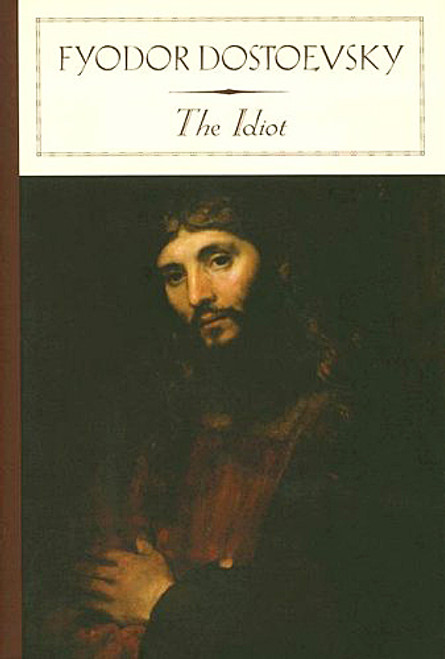The Idiot--Fyodor Dostoevsky's portrayal of a man based on the image of Christ--posed a significant challenge to its author. How does one paint a truly beautiful soul? This became especially difficult because, as he wrote, "beauty is the ideal, and neither my country, nor civilized Europe, know what that ideal of beauty is." The result was one of Dostoevsky's greatest creations--Prince Myshkin, a saintly, yet deeply human character.
The story begins when Myshkin arrives on Russian soil after a stay in a Swiss sanatorium. Scorned by St. Petersburg society as an idiot for his generosity and innocence, the prince finds himself at the center of a struggle between a rich, kept woman and a beautiful, virtuous girl, who both hope to win his affection. Unfortunately, Myshkin’s very goodness seems to bring disaster to everyone he meets. The shocking denouement tragically reveals how, in a world obsessed with money, power, and sexual conquest, a sanatorium is the only place for a saint.
"Dostoevsky had various and distressing personal defects," wrote Arnold Bennet, "but his humanity and his wisdom, doubtless derived from the man Jesus who delivered the Sermon on the Mount, are unique." In The Idiot, Dostoevsky pits his delirious insights into the human heart against conventional religion and the machinery of Russian society.
Translated by Constance Garnett, Revised by Elina Yuffa
With an Introduction by Joseph Frank, Notes by Elina Yuffa
Editorial Review(s)
"Prince Myshkin dramatizes Dostoevsky’s image of 'a perfectly beautiful man,' a being who comes as close as humanly possible to the Christian ideal; but for Dostoevsky there was only 'one positively beautiful figure in the world—Christ,' and the appearance of Christ had been 'an infinite miracle.' There could only be one God-man; and while He remained an eternal aspiration for humanity, such aspiration could never obviously receive its complete fulfillment." —from the Introduction by Joseph Frank
About the Author
Fyodor Dostoyevsky (1821–1881), one of nineteenth-century Russia’s greatest novelists, spent four years in a convict prison in Siberia, after which he was obliged to enlist in the army. In later years his penchant for gambling sent him deeply into debt. Most of his important works were written after 1864, including Notes from Underground, Crime and Punishment, The Idiot, and The Brothers Karamazov.
Joseph Frank is Professor Emeritus of Comparative Literature at Princeton University and Professor Emeritus of Comparative Literature and Slavic Languages and Literature at Stanford University. He is the author of a five-volume study of Dostoevsky’s life and work. The first four volumes received the National Book Critics Circle Award for Biography, two Christian Gauss Awards, two James Russell Lowell Awards of the Modern Language Association, a Los Angeles Times Book Prize, and other honors. Frank is also the author of Through the Russian Prism: Essays on Literature and Culture, The Widening Gyre, and The Idea of Spatial Form. He also wrote the introduction to the Barnes & Noble Classics edition of Dostoevsky’s The House of the Dead and Poor Folk.



